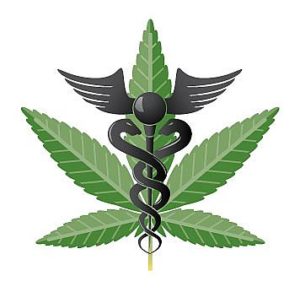 The Public Health (Medicinal Cannabis) Bill 2016 is a bill to enable Queenslanders to get legal access to medical cannabis, which has been written by people who are opposed to medical cannabis, and who believe cannabis is a dangerous drug.
The Public Health (Medicinal Cannabis) Bill 2016 is a bill to enable Queenslanders to get legal access to medical cannabis, which has been written by people who are opposed to medical cannabis, and who believe cannabis is a dangerous drug.
Consequently, it is unnecessarily lengthy, complex, ambiguous and written in an unclear way, the better to hide its conflicted intention, which is to frustrate medical cannabis users until the pharmaceutical companies are ready. In contrast to the 8 pages of the medical cannabis provisions in the Health (Drugs and Poisons) Regulations, currently in use, the bill has 143 pages of provisions. Queensland Health have devised a procedure so restrictive and bureaucratic that even a very determined applicant like Lanai Carter felt like caving-in to the stone-walling and the uncaring inactivity of their bureaucracy.
When he introduced the bill in May, Health Minister Cameron Dick boasted that Queensland had become the first state in Australia to legalise the use of medicinal cannabis as a result of legislative changes in November 2015. Ten months after the claimed legalisation of medical cannabis, there is still no one obtaining medical cannabis legally in Queensland, while tens of thousands are getting their cannabis illegally from family, friends, and the compassion movement.
Throughout his speech on the bill, Health Minister Dick stressed that medicinal cannabis was a dangerous drug, and was particularly dangerous if people were able to grow their own, or if they used it improperly as an alternative to proven conventional treatments without close medical supervision.
To address these dangers, a set of comprehensive and robust regulations were to be legislated. It would remain illegal to grow your own cannabis, even if intended for your own therapeutic use. The bill contained strong penalties for unauthorised use of prescribed medicinal cannabis products. The minister revealed that during implementation of the regulatory framework, the Department of Health will run a public awareness campaign, highlighting that any unauthorised use of cannabis remains illegal. A new police force will be created to enforce the medical cannabis laws.
The medical cannabis community are outraged by the bill, seeing it as a betrayal. Despite the pretence of consultation by Minister Dick, they were completely ignored. They see this bill as written for the pharmaceutical companies. The clear intention of the legislation is to ensure that herbal cannabis remains banned for the benefit of pharmaceutical companies that are seeking to patent and register single molecule cannabis products, with the ultimate goal of acquiring a Pharmaceutical Benefit Scheme listing, which will be worth billions. Their medicine will be expensive, probably won’t work, and will be based on genetically modified cannabis and synthetics (so Big Pharma can charge for intellectual property rights).
The bill has been devised in a Queensland Health version of the Game of Mates. Economist Cameron Murray has identified the basis for the Game of Mates in property development as being: firstly, a honeypot, a valuable economic gain able to be given to private entities with a degree of discretion about who receives it, (medical cannabis licences); secondly, a loyal group of mates who are able to sustain an implicit system of trading favours, a powerful club, which has a revolving-door relationship with the regulating authority; in this case, the politicians, the bureaucrats, the lobbyists and the regulators who have designed this bill; and thirdly, the plausible story to let the public believe that this trading of favours is in the public interest, which in this case is the reiteration of the claim that home-grown cannabis is a dangerous drug, whereas the genetically modified, synthetic cannabinoids the pharmaceutical industry will offer will be safe, at least until the patents run out.
In July, the government requested submissions on the proposed bill and stated they would announce their response on September 30. Sixty-nine submissions were made. The Australian Christian Lobby, the AMA, Queensland Health, and the police were broadly in agreement with the government approach.
Queensland’s medical cannabis community was vehemently opposed to the bill, and the Medical Cannabis Users Association, representing ten thousand medical cannabis users, wanted the right to grow their own medicine and publicly declared they will continue to grow their medicine illegally, which sets them on a collision course with the new police.
On Sunday November 13, The Kurilpa Citizen will be holding a public debate on the issue of medical cannabis at Kurilpa Hall. There will be two members of Queensland’s medical cannabis community, who both wrote submissions about the bill, Deb Lynch and Lanai Carter; a spokesperson from the Civil Liberties Council (who also wrote a submission); councillor Jonathon Sri (no submission from the Greens), and we are inviting a representative from the government.
Dr John Jiggens


